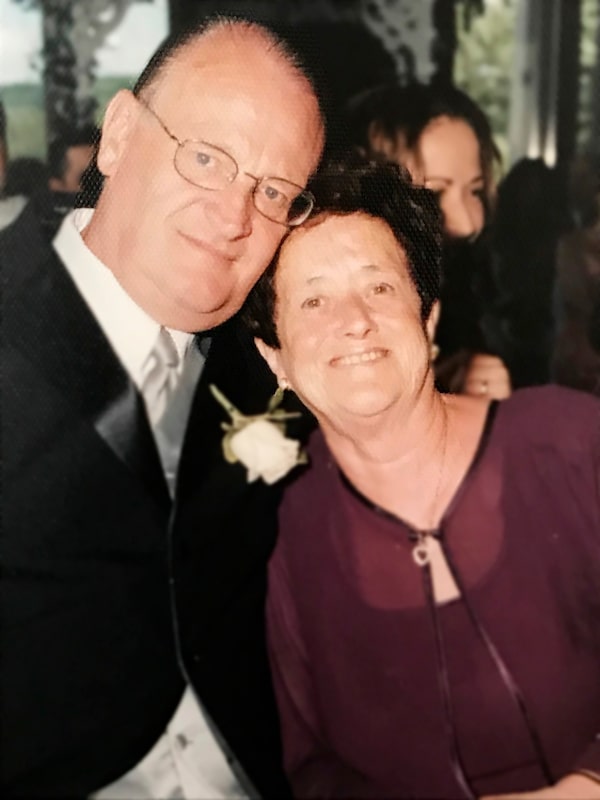
Rod and Greg McVeigh – whose parents, Joan, 79, and Joseph, 76, seen here, live in Seven Oaks – said they learned of the outbreak through the media.family handout/Courtesy of family
At least 16 nursing homes in Ontario have confirmed cases of COVID-19 among residents or staff, a figure the provincial government has not made public despite the heavy toll the new coronavirus is likely to take on frail seniors in long-term care.
Ten of the homes with confirmed cases are in Toronto, including Seven Oaks, a city-owned facility where two residents have died of COVID-19, the disease caused by the virus.
The tally also includes a nursing home in Bobcaygeon where 14 staff members have tested positive and two residents have died.
The provincial government releases total numbers of confirmed cases, but gives few details. Local public-health units communicate other information. This stands in stark contrast to the approaches of British Columbia, Alberta and other provinces, which announce cases in long-term care at daily briefings and update the numbers online.
When asked by The Globe and Mail this week how many long-term care homes in the province had confirmed at least one case of COVID-19 in a resident or worker, the Ontario Ministry of Health was unable to say. The Globe then asked all 34 local public-health units directly.
Samir Sinha, the director of geriatrics at Sinai Health System, said it is imperative to have good data on COVID-19 cases in long-term care so hospitals can prepare for a possible influx of patients in severe respiratory distress.
“Nursing homes are like tinder boxes," said Dr. Sinha, also an adviser to the Ontario government on seniors’ issues. "You have a group of frail, older adults who are in close quarters with each other, with many of them being cared for by the same individual.”
The latest on the coronavirus: U.S. considers putting more troops at Canadian border
Coronavirus guide: Latest news and essential resources about the COVID-19 pandemic
‘Can I take my kids to the park?’ And more coronavirus questions answered by André Picard
Ontario’s lack of centralized reporting is also causing confusion and stress for relatives of nursing-home residents. Members of at least one family had to struggle to get details from a home they could no longer visit because of a ban on visitors designed to keep the coronavirus out.
The Globe’s informal survey found that at least one case of COVID-19 had been confirmed at the following homes: Markhaven Home for Seniors in Markham; St. Joseph’s Health Centre Guelph; Heritage Green Nursing Home in Stoney Creek; Hillsdale Terraces in Oshawa; and Pinecrest Nursing Home in Bobcaygeon.
The Niagara Region’s public-health unit, which did not respond to The Globe’s inquiry, had previously reported that the first person in the region to die was a man in his 80s who was a resident of the Ina Grafton Gage long-term-care and retirement homes in St. Catharines.
Toronto’s Medical Officer of Health, Eileen de Villa, told reporters on Thursday that 10 long-term homes in the city and one retirement home now have COVID-19 cases. Three have outbreaks – defined as two or more cases in a home, Dr. de Villa added.
Dr. de Villa did not name the nursing homes, and Toronto Public Health was unable to provide a list by late Thursday.
“COVID-19 in the context of long-term-care homes is always concerning," Dr. de Villa said. "We know that COVID-19, in particular, is a virus that hits hard on those who are on the older side of the age spectrum, and also hits hard on those who have chronic conditions.”
At Scarborough’s Seven Oaks, a 249-bed city-owned facility, COVID-19 had been confirmed in nine residents and seven staff as of Thursday, associate medical officer of health Elizabeth Rea said by e-mail.
Two residents of the home have died of COVID-19.
Rod and Greg McVeigh, whose parents, Joan, 79, and Joseph, 76, live on the fourth floor of Seven Oaks, said they learned of the outbreak through the media.
The home, which sent official coronavirus updates to a defunct e-mail address of Rod’s, initially failed to reply to calls and e-mails from the brothers.
After reading on March 20 that a case had been confirmed on the third floor of the home, Greg said he reached a nurse by phone and asked that his mother eat in her room, rather than the communal dining room. (His father, who has congestive heart failure, is bedridden and already takes meals in his room.)
Greg said the nurse told him communal dining would continue on the fourth floor because coronavirus had not yet been confirmed on that level. The virus was later confirmed in a fourth-floor resident.
Ms. McVeigh now has a fever and is awaiting the results of COVID-19 testing, her sons said.
“The whole family is on edge,” Rod said. “I’m just waiting for the phone call to tell me my Dad has a fever, too.”
Dr. Rea said by e-mail that Seven Oaks has implemented all Toronto Public Health’s outbreak protocols, including establishing an outbreak management team with health experts who are meeting daily.
The home extended outbreak precautions to the whole building on March 23, when the first case was identified on the fourth floor, Dr. Rea added.
The spread of the novel coronavirus that causes COVID-19 continues, with more cases diagnosed in Canada. The Globe offers the dos and don'ts to help slow or stop the spread of the virus in your community.
The Globe and Mail
Sign up for the Coronavirus Update newsletter to read the day’s essential coronavirus news, features and explainers written by Globe reporters.
 Kelly Grant
Kelly Grant